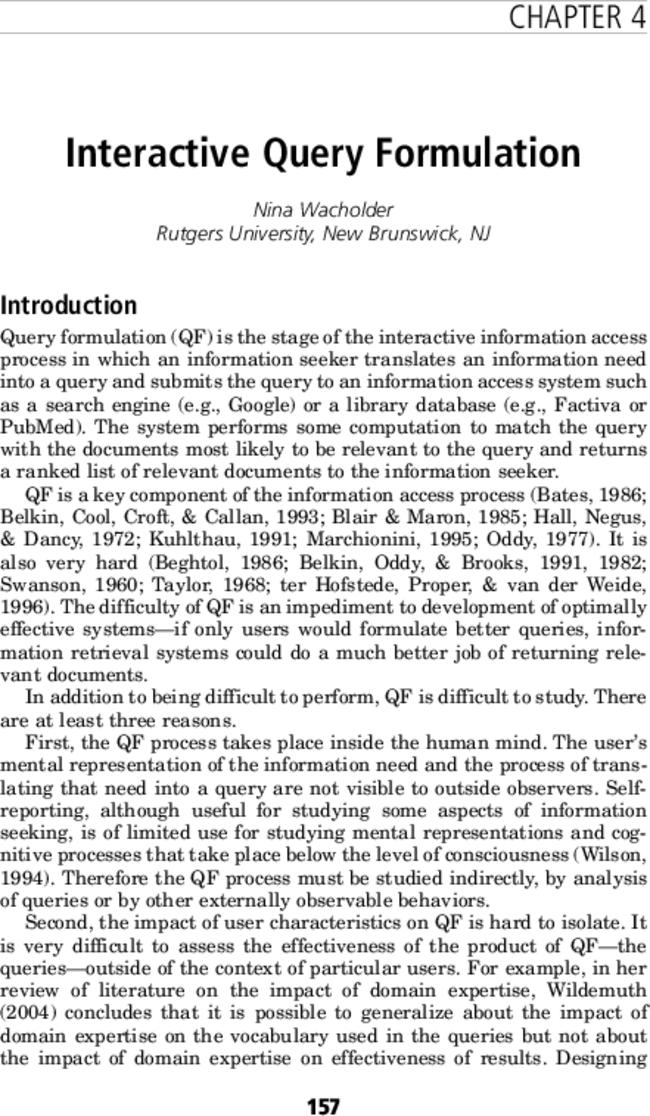Interactive query formulation
Annual Review of Information Science and Technology
Pub Date : 2013-01-02
DOI:10.1002/aris.2011.1440450111
引用次数: 31
Abstract
Query formulation (QF) is the stage of the interactive information access process in which an information seeker translates an information need into a query and submits the query to an information access system such as a search engine (e.g., Google) or a library database (e.g., Factiva or PubMed). The system performs some computation to match the query with the documents most likely to be relevant to the query and returns a ranked list of relevant documents to the information seeker. QF is a key component of the information access process (Bates, 1986; Belkin, Cool, Croft, & Callan, 1993; Blair & Maron, 1985; Hall, Negus, & Dancy, 1972; Kuhlthau, 1991; Marchionini, 1995; Oddy, 1977). It is also very hard (Beghtol, 1986; Belkin, Oddy, & Brooks, 1991, 1982; Swanson, 1960; Taylor, 1968; ter Hofstede, Proper, & van der Weide, 1996). The difficulty of QF is an impediment to development of optimally effective systems—if only users would formulate better queries, information retrieval systems could do a much better job of returning relevant documents. In addition to being difficult to perform, QF is difficult to study. There are at least three reasons. First, the QF process takes place inside the human mind. The user’s mental representation of the information need and the process of translating that need into a query are not visible to outside observers. Selfreporting, although useful for studying some aspects of information seeking, is of limited use for studying mental representations and cognitive processes that take place below the level of consciousness (Wilson, 1994). Therefore the QF process must be studied indirectly, by analysis of queries or by other externally observable behaviors. Second, the impact of user characteristics on QF is hard to isolate. It is very difficult to assess the effectiveness of the product of QF—the queries—outside of the context of particular users. For example, in her review of literature on the impact of domain expertise, Wildemuth (2004) concludes that it is possible to generalize about the impact of domain expertise on the vocabulary used in the queries but not about the impact of domain expertise on effectiveness of results. Designing CHAPTER 4

交互式查询公式
本文章由计算机程序翻译,如有差异,请以英文原文为准。
求助全文
约1分钟内获得全文
求助全文

 求助内容:
求助内容: 应助结果提醒方式:
应助结果提醒方式:


